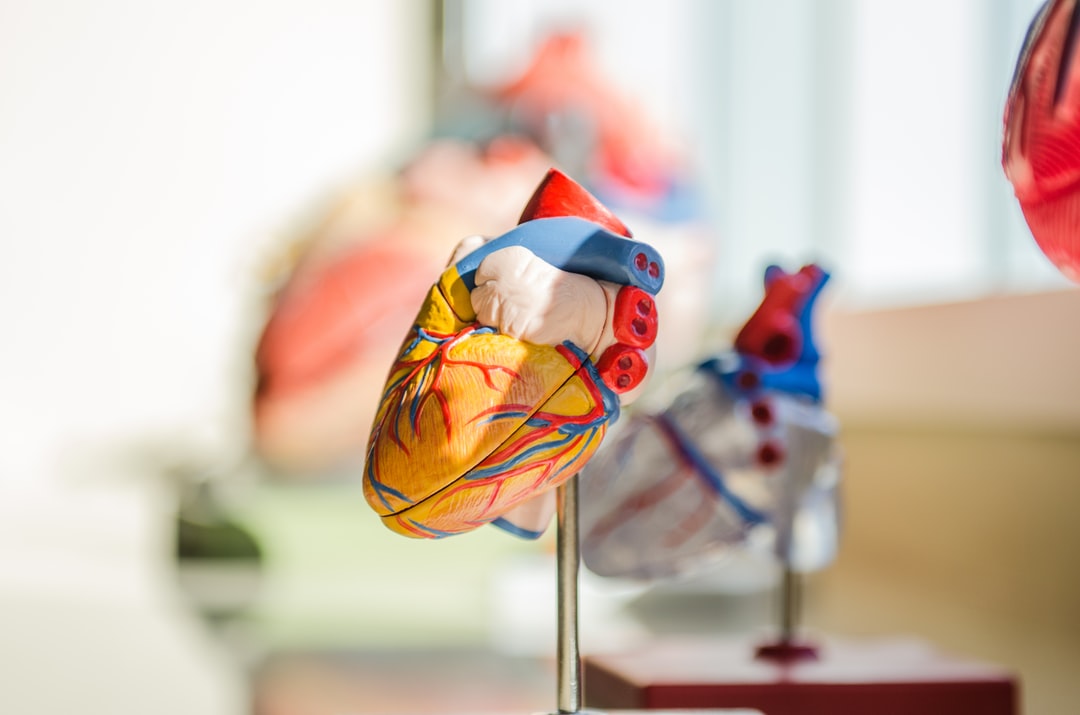4 Little-Known Blood Tests for Heart Attacks & Strokes

Written by: Jon Mitchell, PA-C
According to the CDC, heart disease is the #1 killer for both men and women in America.
If you want to reduce your cardiovascular risk & improve your longevity...
Then it's important to get annual labs done with your doctor so that you know your risk of adverse health events, such as a heart attack or stroke.

These types of tests allow you to make appropriate dietary and lifestyle changes to address any abnormalities seen on your results.
Here's the problem: I believe most doctors are still using subpar tests to get this done.
In fact, the standard cholesterol panel is a poor predictor of all cause mortality, or death from any cause.
But here's the good news:
There is better testing available now. Most of the time, all you have to do is ask for it.
So, here are 4 tests that doctors don’t regularly order... but I believe they should when assessing cardiovascular risk 👇
1. Ferritin
Ferritin is the storage form of iron.
As ferritin levels climb above 200 ng/mL... your risk of dying increases, too.
In the Copenhagen City Heart Study that looked at a population of 9,000 people it was found that if ferritin was…
600+ the median survival was 55 years old
400-599 the median survival was 72 years old
200-399 the median survival was 76 years old
<200 ferritin the median survival was 79 years old
As you can see, as ferritin climbs above 200 survival begins to decline gradually and then accelerates drastically if it goes above 600.
Clearly this is an important marker to follow... especially since one possible fix is really simple: Donate blood.
2. ApoB
ApoB is a marker that looks at the number of LDL particles in the blood.
It’s essential to understand the distinction between LDL particles versus LDL cholesterol, which is what most doctors test for.
Here’s a simple analogy:
Look at the LDL cholesterol like the number of passengers on a ship... and look at LDL particle number as the number of ships.
It is damaged ships (oxidation) that leads to atherosclerosis (damage to your arteries that leads to narrowing and hardening) — not the number of passengers on the ship.
So, it’s more important to understand how many ships (ApoB) are present... versus how many passengers there are on those ships (LDL cholesterol)...
Because there's research data that supports using ApoB as a better marker for assessing cardiovascular risk than LDL cholesterol.
3. Homocysteine
Homocysteine is a sulfur-containing amino acid that is reflective of methylation within your body.
Methylation is a process that controls vital bodily functions like:
Gene expression
Cell replication
Neurotransmitter production
Detoxification
And more...
When homocysteine is elevated... it is associated with increased clotting which can lead to things like strokes, heart attacks, and pulmonary embolisms (clots in the lungs).
Elevations in homocysteine are often a result of deficient B-vitamins, including B6, B12, and folate — but it can be for other reasons as well.
4. Lp(a)
Lipoprotein(a) — or Lp(a) — is another type of lipoprotein that promotes clotting within the arteries.
So, higher levels of Lp(a) are associated with an increased risk of heart attacks and strokes.
Some say Lp(a) levels are largely due to genetics... and that there aren't many lifestyle interventions to lower this number.
It also could be that we just haven’t found the right combination of lifestyle and dietary changes to make a significant difference.
For instance, studies show that niacin and flax seeds may help lower this number. (Source 1, Source 2)
And even if this is something that cannot be lowered via life choices... simply knowing this number allows you to better understand your risk of cardiovascular disease.
The Bottom Line
"It's hard to get where you want to go - if you don't know where you currently are."
This is especially true when it comes to our health. That's why testing is important.
If you ask your doctor about these blood tests... maybe they could help you to avoid becoming a statistic in the fight against cardiovascular disease.
---
At UltimateHuman.Org, we talk about what you need to look, feel, and be your best self.
For more on the latest in biohacking, anti-aging, longevity, and health... Join the community by clicking below 👇
